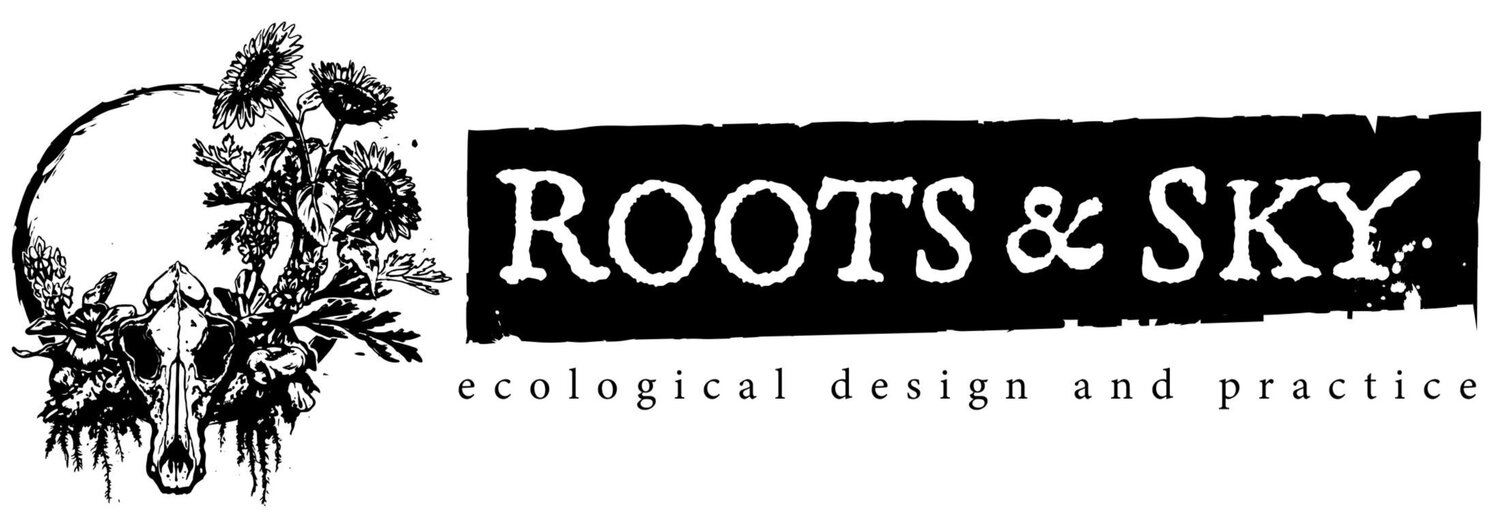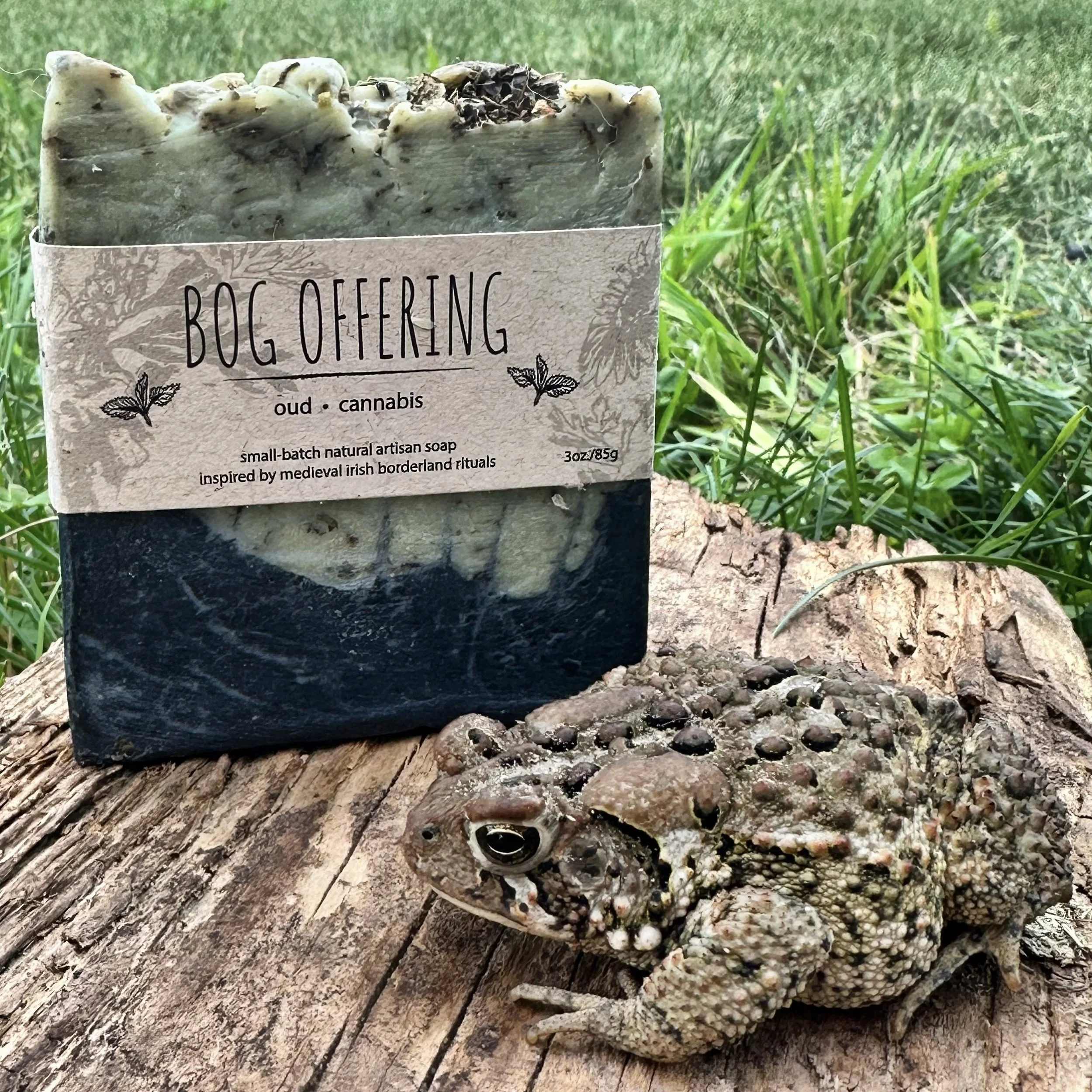Bog Offering
Bog Offering
This soap includes nettles like those I collected and prepared with a professional forager in the Irish countryside. I infused olive oil with nettle and cannabis to create the murky green hue.
ℕ𝕖𝕥𝕥𝕝𝕖 - natural green color, astringent properties helpful for greasy, dry, itchy, and inflamed skin
ℂ𝕙𝕒𝕣𝕔𝕠𝕒𝕝 - detoxifying, treats oily skin, tightens skin and pores, good for blemishes
ℂ𝕒𝕟𝕟𝕒𝕓𝕚𝕤 - balances skin pH keeping it impervious to fungi, prevents skin from drying or cracking and promotes skin regeneration.
𝕆𝕦𝕕 𝕎𝕠𝕠𝕕 creates a musky mossy scent considered to be an aphrodisiac, also helpful for the nervous system and has been used as treatment for epilepsy.
𝔹𝕖𝕣𝕘𝕒𝕞𝕠𝕥 is good for inflammation and pain relief.
Named for my time visiting the bogs in Ireland where medieval villagers would deposit the ritually dismembered remains of the Nobles or Kings who they’d sacrificed and submerged as offerings to appease their gods in hopes of better weather and crop seasons. Their remains have been found remarkably preserved in the aseptic peat bogs throughout the country and were on display in the national museum in Dublin.
ℍ𝕒𝕣𝕧𝕖𝕤𝕥𝕚𝕟𝕘 ℙ𝕖𝕒𝕥 𝕚𝕤 𝕌ℕ𝕊𝕌𝕊𝕋𝔸𝕀ℕ𝔸𝔹𝕃𝔼
Visiting the peat bogs was profound. This rare ecosystem supports a unique set of species and is valuable for purifying water that flows through it. While traditionally dried into bricks and burnt as an energy source, peat is unsustainably harvested as a gardening amendment sold around the world. The harvest destroys that ecosystem. Given the slow regeneration rate - growing about a yard deep every thousand years, it will be gone in our lifetime unless we stop harvesting it. Avoid peat products and additives in potting soil and seed starters. Instead use coconut coir, compost, leaf mold, sawdust, shredded bark or wood chips.
Cold process soap made with a vegan, palm-oil free base of olive oil and coconut oil.



